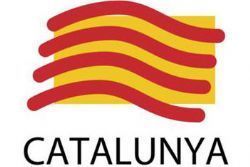- Business
- Childbirth & Education
- Legal Formalities
- Motoring
- Other
- Pensions & Benefits
- Property & Accommodation
- Taxes
- Airports and Airlines Spain
- Paramount Theme Park Murcia Spain
- Corvera International Airport Murcia Spain
- Join us for Tea on the Terrace
- When Expat Eyes Are Smiling
- Meet Wincham at The Homes, Gardens & Lifestyle Show, Calpe
- QROPS 2014
- Spain Increases IHT in Valencia & Murcia
- Removals to Spain v Exports from Spain
- The Charm of Seville
- Gibraltar Relations
- Retiro Park : Madrid
- Community Insurance in Spain
- Calendar Girls
- Considerations when Insuring your Boat in Spain
- QROPS – HMRC Introduces changes that create havoc in the market place
- QROPS – All Change From April 2012
- Liva & Laia : 15th November

Catalonia’s pro-independence leaders have captured the discontent among the majority of people in the northeastern region regarding their current status within Spain, but confuse desire with reality when they try to bring independence into the equation: an opinion poll commissioned by EL PAÍS shows that 46% of Catalans would support their region’s continued presence within Spain if they were granted “new and guaranteed exclusive powers.”
Added to the 19% of Catalans who reject independence, these supporters of new powers for the region form a majority that seriously weakens the regional government’s demands for secession.
In their game of cat and mouse with Madrid, Catalonia’s pro-independence leaders seem to have overlooked the mood of weariness felt by many voters there. After months of legal stand-offs between the two sides, 65% of Catalans believe “the sovereignty process is not having a good moment,” compared to 27% who believe the opposite, according to the survey, carried out by pollsters Metroscopia.
This mood does not hide the political reality that in recent years has split Catalan society. Voters in the region still believe that holding a legal referendum on independence is viable despite Madrid’s position that any such vote would be unconstitutional. In stark terms, if such a vote were, hypothetically, able to be held in a legal manner, more people in Catalonia would vote to remain part of Spain (49%), but a considerable number would opt for separation (44%).
If they were asked the same question in a legal referendum, but with the proviso that Catalonia would have to reapply for EU membership, 53% of Catalans would prefer to remain part of Spain, with 40% still choosing secession.
Arguably, the most relevant aspect of the poll is the feeling expressed by the majority of respondents that they lack real choices and are unhappy with the approaches of both Madrid and the government in Catalonia: a majority of people want a third way, a political pact that would lead to constitutional reform allowing Catalonia to remain part of Spain but with “new and guaranteed exclusive powers.”
This possibility, which the central government has never seriously considered, would convince 46% of Catalans, with just 31% saying that the only possible way forward is full independence.
This majority desire for a negotiated settlement is echoed by the opposition by 61% of those polled for a unilateral declaration of independence, compared to 33% who support it.
Recommended Reading :
* US snubs Catalan Independence drive
* Spain court block Catalan budget for independence referendum










